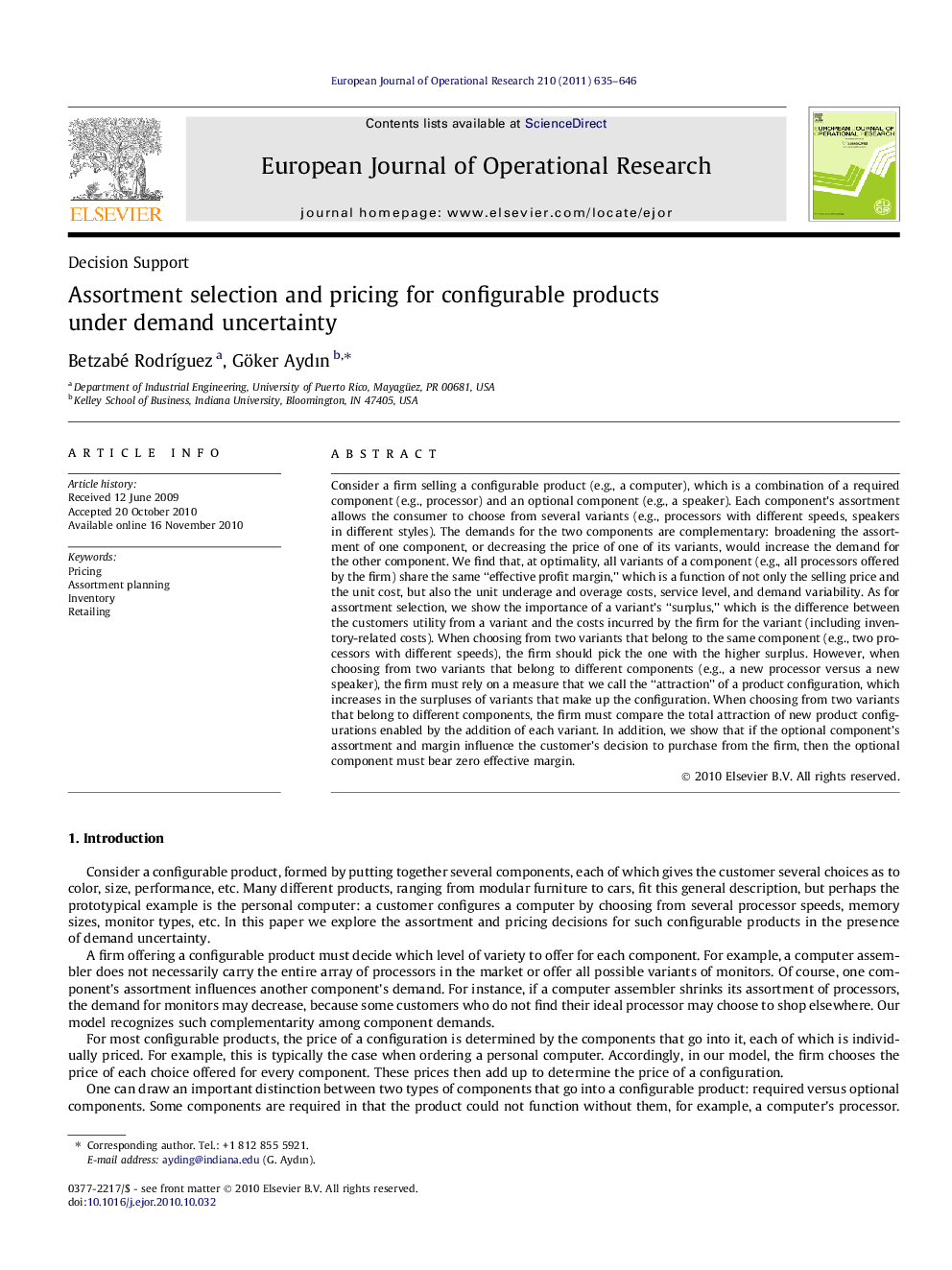| Article ID | Journal | Published Year | Pages | File Type |
|---|---|---|---|---|
| 478542 | European Journal of Operational Research | 2011 | 12 Pages |
Consider a firm selling a configurable product (e.g., a computer), which is a combination of a required component (e.g., processor) and an optional component (e.g., a speaker). Each component’s assortment allows the consumer to choose from several variants (e.g., processors with different speeds, speakers in different styles). The demands for the two components are complementary: broadening the assortment of one component, or decreasing the price of one of its variants, would increase the demand for the other component. We find that, at optimality, all variants of a component (e.g., all processors offered by the firm) share the same “effective profit margin,” which is a function of not only the selling price and the unit cost, but also the unit underage and overage costs, service level, and demand variability. As for assortment selection, we show the importance of a variant’s “surplus,” which is the difference between the customers utility from a variant and the costs incurred by the firm for the variant (including inventory-related costs). When choosing from two variants that belong to the same component (e.g., two processors with different speeds), the firm should pick the one with the higher surplus. However, when choosing from two variants that belong to different components (e.g., a new processor versus a new speaker), the firm must rely on a measure that we call the “attraction” of a product configuration, which increases in the surpluses of variants that make up the configuration. When choosing from two variants that belong to different components, the firm must compare the total attraction of new product configurations enabled by the addition of each variant. In addition, we show that if the optional component’s assortment and margin influence the customer’s decision to purchase from the firm, then the optional component must bear zero effective margin.
